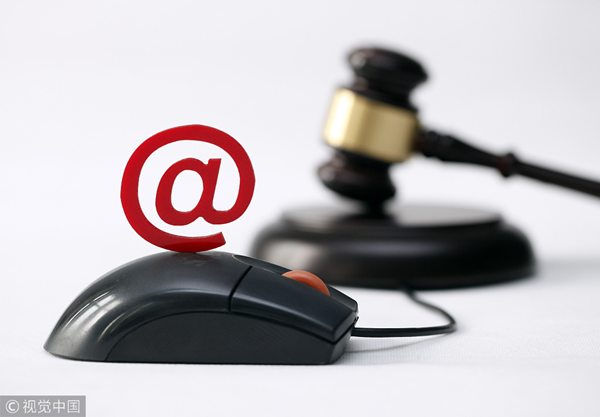Event to build better online environment
(China Daily)| Updated : 2022-08-24
Print Print
Regulator seeks to protect personal information, root out bullying, rumors
The 2022 China Internet Civilization Conference will be held in Tianjin from Aug 28 to 29, in an effort to call on all walks of life to build a better online environment, a senior cyberspace regulator said on Tuesday.
The conference, which will kick off at the National Convention and Exhibition Center (Tianjin), includes a main forum and a network integrity summit, with 10 sub-forums covering topics such as governing cyberspace by rule of law, how to fight online rumors and intensifying personal information protection, according to Sheng Ronghua, deputy head of the Cyberspace Administration of China.
"Representatives from government departments, companies, organizations, celebrities and experts involved in the internet sector will attend and share their ideas on those topics," he said.
It is the second time the conference has been organized. It was first held in Beijing in November.
In response to public concerns, including those about online bullying and harmful information, the administration has taken a series of measures over the past few years to improve cyberspace governance.
Since 2019, for example, more than 20 billion pieces of harmful information in cyberspace and some 1.4 billion problematic online accounts have been eliminated, Sheng said.
This year, a campaign against bullying on the internet has also been launched nationwide, with comments and private chats in online groups, forums, e-commerce platforms and mini-programs as major targets, he said.
So far, more than 65.4 million messages suspected of attacking, slandering or defaming others on the internet have been removed, while 78,000 illegal accounts have been shut down, he added.
"We've also encouraged internet platforms to join us to avoid online bullying by innovating and improving their prevention systems, such as sending risk alerts to users who may be suffering from bullying and guiding them to use the 'one-click' function to keep away from the harm," he said.
Additionally, internet service providers and platforms have been required to verify the identity of users and show their IP addresses to prevent paid posters and those registering and using accounts for nefarious or even illegal acts in cyberspace, according to Sheng.
"Online problems widely influencing netizens and harming their interests are always our main battlefields in cyberspace governance," he added.
Zhang Xunhong, an official responsible for the internet-related social affairs of the administration, called for more walks of life, including social organizations and internet enterprises, to jointly pay greater efforts in building a better online environment.
"We'll have a healthy development in cyberspace only when everyone surfs the internet in a civilized manner," he added.
In recent years, China has stepped up efforts to strengthen cyberspace governance. Last year, it launched a two-month campaign targeting those who lure youngsters to spend large amounts of money on celebrities and their products, flaunt their wealth or become involved in mudslinging exchanges with fans of rival performers.